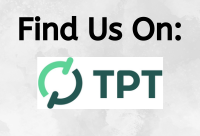One out of every twelve kids less than five years of age in Canada experiences a delay in language development. Yet a recent poll has revealed that 94% of Canadian parents of children under five rate their child’s language skills as average or above indicating that there is a potential to not recognize speech and language delays in pre-school children.
As a result, many children may be starting school without the fundamental language and early literacy skills that ensure academic success – and some of those children may never catch up.
Angus Reid Strategies conducted a one-day online survey on behalf of The Hanen Centre. The Hanen Centre is a not-for-profit authority in the development of family-focused early language intervention programs and learning resources. The survey was conducted among a randomly selected, representative sample of 1003 adult Canadians. The full report of their findings can be downloaded here. (pdf)
 One of the learning resources available from The Hanen Centre is a calendar that can help parents of preschoolers to incorporate language and literacy tips into daily activities and play routines.
One of the learning resources available from The Hanen Centre is a calendar that can help parents of preschoolers to incorporate language and literacy tips into daily activities and play routines.
Here’s a sampling of the tips included in the calendar:
* Follow the child’s lead in conversation and keep conversations going as long as possible
* Create an environment full of meaningful print
* In addition to reading books together, make grocery lists, write birthday cards and read advertising flyers.
* Use unfamiliar vocabulary in everyday conversation, explaining what the words means

I will be receiving a copy of this calendar and will add to this post after I see it with my thoughts.
UPDATE: I’ve received my copy! The calendar has 8 tips for each month, 4 for in the classroom and 4 for at home. The classroom tips and home tips are similar under each category, but just tailored for teacher vs parent, class vs children. There are four categories of tips for each month: Daily Activities, Pretend Play, Reading Books and On The Go.
Each month is dedicated to a different skill/idea such as Follow the Child’s Lead in Conversations, Increase Children’s Everyday Vocabulary, Stimulate Children to Think Beyond the Here-and-Now and Encourage Play with Sounds, Syllables and Words.
The ideas are great and are things every parent (and teacher) should be doing with the children in their care. I’ve been doing most of these activities since my children were born and people often remark that they think they are older than they are because they talk so well and have such a rich vocabulary. I’m not trying to brag I just want to illustrate that I can vouch for these ideas. Below is a sample of some of the ideas.
In the Classroom:
Use new words when pretending with the children and explain them by using simpler, familiar words. “I am anxious because I can’t find my baby. I am very worried.” Use the new words often in other situations.
Ask children to find pictures in an alphabet book that begin with a certain letter. When they find the correct picture, talk about the sound the letter makes.
At home:
Read the words on cereal boxes. Count the number of words on each box and see if any have the same letters. Talk about words and letters and point to the words as you read them.
Collect souvenirs from a trip. Use the items to inspire your child to dictate a story about the trip. Create a book from his story and read it with him. Leave it where he can “read” it himself.
The poster is a quick at-a-glance chart that summarizes the emergent literacy skills that children need to learn and what months you will find activities for that skill in the calendar.
My only suggestion for a way to make this product better would be to make the calendar also usable as a calendar. Right now the ideas are printed across the weeks so you can’t use the calendar as a calendar itself.




Speak Your Mind